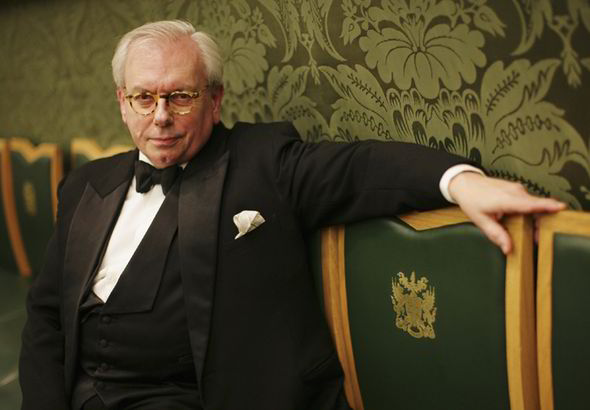The British media is clamouring to take potshots at right-wing historian David Starkey today, for his not unfair comparison between the Scottish National Party, which won 56 seats at the general election, and the National Socialist German Workers’ (Nazi) Party of Germany, circa 1920-1945.
The outrage reveals some really short memories in the establishment media, because Starkey’s comments are no different to what he warned about during a parliamentary meeting in April 2012.
Mr Starkey has been criticised for his comments in the Sunday Times this week, where he says, “…we have a political movement that has a single historic explanation for why your country is facing such terrible oppression; it’s either Versailles or the Treaty of the Union.”
“You have a particular group of people who are responsible for this; it is either the English or the Jews.”
But not only do Mr Starkey’s comments not offer anything more newsworthy than when he called then leader of the SNP, Alex Salmond, a “Caledonian Hitler” – but he is also supported by a leading German journalist who offered his insights just after the British election, calling the SNP a “modern national socialism light”.
Starkey, speaking at a meeting of the Bow Group, said that from the SNP’s perspective, “the English, like the Jews, are everywhere”. One tweet from the event reports that Mr Starkey said in 2012, ““If you think about it, Alex Salmond is a democratic Caledonian Hitler, although some would say Hitler was more democratically elected.”
And Reiner Luyken, a Scottish-dwelling journalist for Die Zeit newspaper, recently wrote of the SNP’s victory in Scotland: “A majority of [Scottish voters] flung themselves into the arms of a party the ideology of which is modern national socialism light.
“Populist, egalitarian, anti-elitist and glorifying the moral superiority of one’s own nation. Using their propaganda the party split the country into patriots and unreliable non-believers. On one side the Yessers, faithful Scots who voted Yes in September, and on the other side unionists and quislings.”
Nonetheless, the British media has seized on Mr Starkey’s comments today, despite them being over three years in origin.
Could it be a sign that the British media has an extraordinarily short memory? Or maybe this is just another sign that even the right-wing papers in Britain have turned on the thinkers and historians who support British conservatism, just as the Conservative Party has?

COMMENTS
Please let us know if you're having issues with commenting.